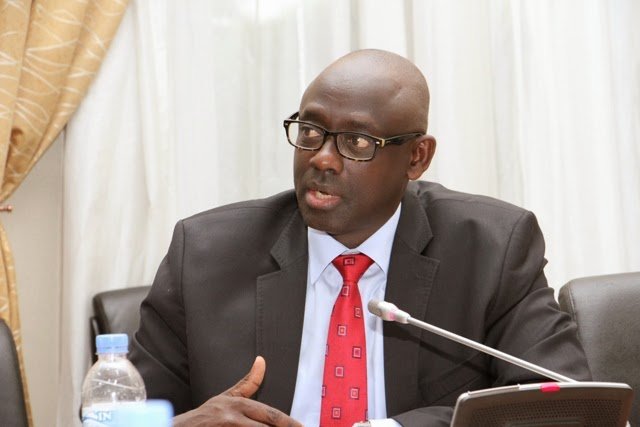By Robert Mugabe
Kigali, Rwanda—Rwanda’s Minister of Justice and Attorney General has stated that Rwanda will not become a member of the international criminal court, and that his country has no plans to adhere to the Rome statute.
“We chose not to be a member of international criminal court (ICC). That means we cannot ask the ICC to do anything for us. Rwanda simply doesn’t see any added value in joining the Rome statute,” Johnston Busingye said in an exclusive interview with great lakes voice.
Setting up an alternative court
According to Busingye, Rwanda envisages the establishment of a continental supra judiciary, as by ratifying a treaty placing capital offences under the jurisdiction of the African court on human and peoples’ rights.
African heads of state have already agreed on the idea of a continental court to prosecute genocide, terrorism, crimes against humanity and war crimes.
“By the way, Rwanda is not the only country that is not a member of the ICC,” Busingye added. “Not even the united states is a signatory to the Rome statute.”
These statements come weeks after the ICC celebrated the 16th anniversary of the adoption of the Rome statute on 17 July.
In celebration of the day of international criminal justice, James Stewart, deputy prosecutor at the ICC, said that the court’s requests for cooperation receive positive responses both from states party to the Rome statute and from states notparty thereto.
“The court has faced many challenges along the way, and continues to face
Them, but the ICC has taken its place in the world as an indispensable legal institution promoting justice, giving a meaningful voice to victims, and helping to prevent mass crimes that threaten the peace, security and the well being of humanity,” Stewart said.
The m23 factor
Minister Busingye said that Rwanda had received a list of four wanted Congolese refugees, but that the list was lacking in detail and that an extradition request had no legal basis.
“The Congolese government did not present a sufficient legal basis for extradition. We told them to present us with proper documents so that we can at least know the charges and some evidence,” Busingye added.
Rwanda’s justice minister advocates for every country to adopt punitive sections in its own penal code.
However, the Congolese government is also in the process of screening members of the 23 march movement (m23), formerly an armed rebel group operating in north Kivu, to extend to them amnesty.
Long-time ICC fugitive Bosco Ntaganda surrendered himself to the American embassy in Kigali following the defeat of m23-Runiga in March 2013 and was quickly transferred to The Hague, where he has since been held in pretrial detention.
The fact that Rwanda is not a party to the Rome statute had briefly raised concerns among some in the international community that Rwanda might attempt to obstruct Ntaganda’s transfer from the American embassy to the ICC, but the transfer ultimately took place without incident.

